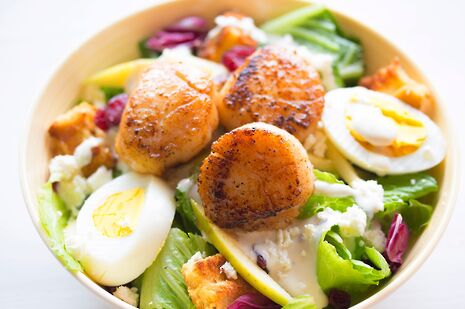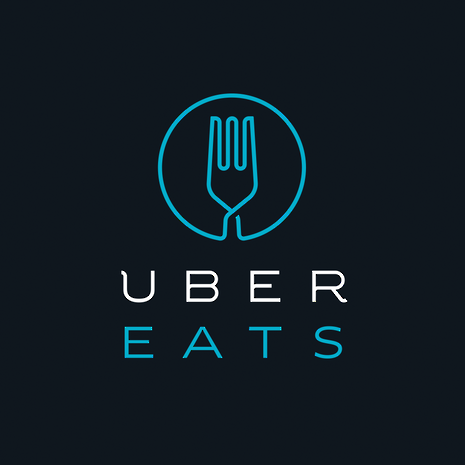What happens if we keep eating the way we do?
Is veganism, vegetarianism, or any other extreme diet purely self-satisfactory, or does it play an important global role? Polly Evans argues for the latter

Each week I’ve looked at the ways technology is changing every aspect of our lives, promising to make things quicker, easier and more efficient. We might think that the pleasure we take from eating is something that will never be displaced by technology. This may be true, but what is changing in the 21st century is our relationship with food. Thanks to photo-sharing platforms like Instagram and Facebook, we’re seeing a new kind of aestheticised digital presentation of food, which is largely polarised between ‘clean eating’ on the one hand and excessive, meat-and-cheese-centred food porn on the other. The former is promoted by figures like Deliciously Ella, despite her conscious disassociation from the phrase ‘clean eating’, whose Instagram feed is full of sunny smiles and almond butter dressings, and the latter by pages like ‘Tasty’, a Facebook page that has amassed over 82 million likes by sharing videos of indulgent ‘recipes’. Both attitudes towards food are unhealthy and they perpetuate the concept of food as a brand. These ‘brands’ are often gendered and these cultural stereotypes can be seen to be exploited in KFC’s recent advert – an admittedly funny parody of clean eating, where posh, ditsy ‘Figgy Poppleton-Rice’ attempts to make a KFC clean eating burger out of a cauliflower, boiled chicken and ice cubes, only to be vanquished by a giant poster advertising a ‘dirty Louisiana’ burger filled with fried chicken and cheese that falls down and crushes the cauliflower. It’s a great bit of marketing, although I find it a shame that it capitalises on this polarisation between what is essentially clean/dirty eating. While it’s understandable that ‘clean eating’ is stigmatised, considering it often manifests itself in eating disorders and an unhealthy obsession with exactly what people eat, the choice to eat ‘clean’ shouldn’t be a binary one.

The digital age has presented us with a strangely detached notion of food, where we can see an image of a pepperoni pizza oozing cheese and minutes later have it delivered to your door through Deliveroo or UberEATS. The whole process of planning, sourcing and assembling a meal becomes redundant. Very few of us nowadays are aware of where our food comes from or how it is made, and hardly any of us could tell you which fruit or vegetables are in season. Often we like to comfort ourselves with the idea that our food is locally or ethically sourced when really we are completely ignorant of where it’s from – last year Tesco found themselves in the midst of controversy when they completely made up farm names on their packaging: Willow Farms whole chicken, Boswell Farms diced beef, and Rosedene Farms blueberries were all found to come from manufacturers which bore no relation to those names, and some weren’t even from the UK at all.
The minimum requirement nowadays in the UK is that hens are kept in a cage the size of an A4 sheet of paper, with a tiny extra postcard-sized bit of shared space for them to scratch and nest. These ‘enriched’ caged chickens often have their beaks clipped – a painful process – and industrial egg-laying hens are now bred to produce around 320 eggs over a lifespan of about 72 weeks. This high intensity of production tends to affect their bones, which become brittle and easily broken. ‘Free range’ has lost all meaning, where the only specification is that the bird can’t be kept indoors for a full 24-hour day. Even if you don’t care about animal cruelty, there are other reasons why our meat industry is not sustainable or ethical. For example, vital fish stocks are effectively taken from West Africa to feed pigs and chickens in Western factory farms. Animal agriculture and meat consumption are also significant contributors to global warming. As our population increases, we need to think about our reliance on meat.
This need for change offers a huge economic opportunity for those working with plant protein, for example companies like Need for Change. One substitute meat company is Beyond Meat, a start-up whose investors include Bill Gates. Their aim is to appeal to not just vegetarians but also omnivores, by creating something replicating the architecture and composition of a piece of muscle. Their products have received mixed reviews, although the general consensus seems to be that while they have good equivalents to low-quality meat, they aren’t yet able to replicate the truly meaty taste. In a bid to tackle this problem, lots of research is currently going into ‘cultured meat’, meat made from stem cells extracted from cow muscle tissue and cultured in a lab with nutrients and growth-promoting chemicals. 2013 saw the first ‘in-vitro’ burger, costing over £200,000. Again, the verdicts were mixed, with one taster thinking it was just like a real burger, and one saying it wasn’t juicy enough.
“Both attitudes towards food are unhealthy and they perpetuate a concept of food as a brand.”
It’s unlikely that we’ll ever be able to replicate the exact flavour of good quality meat anytime soon, but what we can do is cut our consumption of bad-quality meat. There are plenty of foods that we can eat instead that are more sustainable, including soy-based meat imitations. It’s difficult to be stringent with any extreme diet, but even if we aim to replace low-quality processed meats in the majority of our recipes with plant-based equivalents, it could make a difference and make our experiences of good quality meat even more pleasurable. The health benefits to this are also numerous.
People seem to view the vegan brand negatively, constructing the stereotype as self-satisfied and sanctimonious, as well as strict and obsessive. However, it is possible to adopt a new attitude to food without it galvanising your entire lifestyle. In altering this viewpoint, we need to avoid words like ‘natural’ and ‘unnatural’ – taking vitamin supplements seems unnatural to some, but to others so is eating processed meats that come from a factory that pumps animals full of GM crops. There’s not much point looking back to the origins of mankind to assess what we should be eating. Rather, we should be looking forward to how our diets are affecting the future of our planet. And if you believe that you are what you eat, you might want to know what exactly that is
 Features / Should I stay or should I go? Cambridge students and alumni reflect on how their memories stay with them15 December 2025
Features / Should I stay or should I go? Cambridge students and alumni reflect on how their memories stay with them15 December 2025 News / Cambridge study finds students learn better with notes than AI13 December 2025
News / Cambridge study finds students learn better with notes than AI13 December 2025 Comment / The magic of an eight-week term15 December 2025
Comment / The magic of an eight-week term15 December 2025 News / News In Brief: Michaelmas marriages, monogamous mammals, and messaging manipulation15 December 2025
News / News In Brief: Michaelmas marriages, monogamous mammals, and messaging manipulation15 December 2025 News / Uni Scout and Guide Club affirms trans inclusion 12 December 2025
News / Uni Scout and Guide Club affirms trans inclusion 12 December 2025









